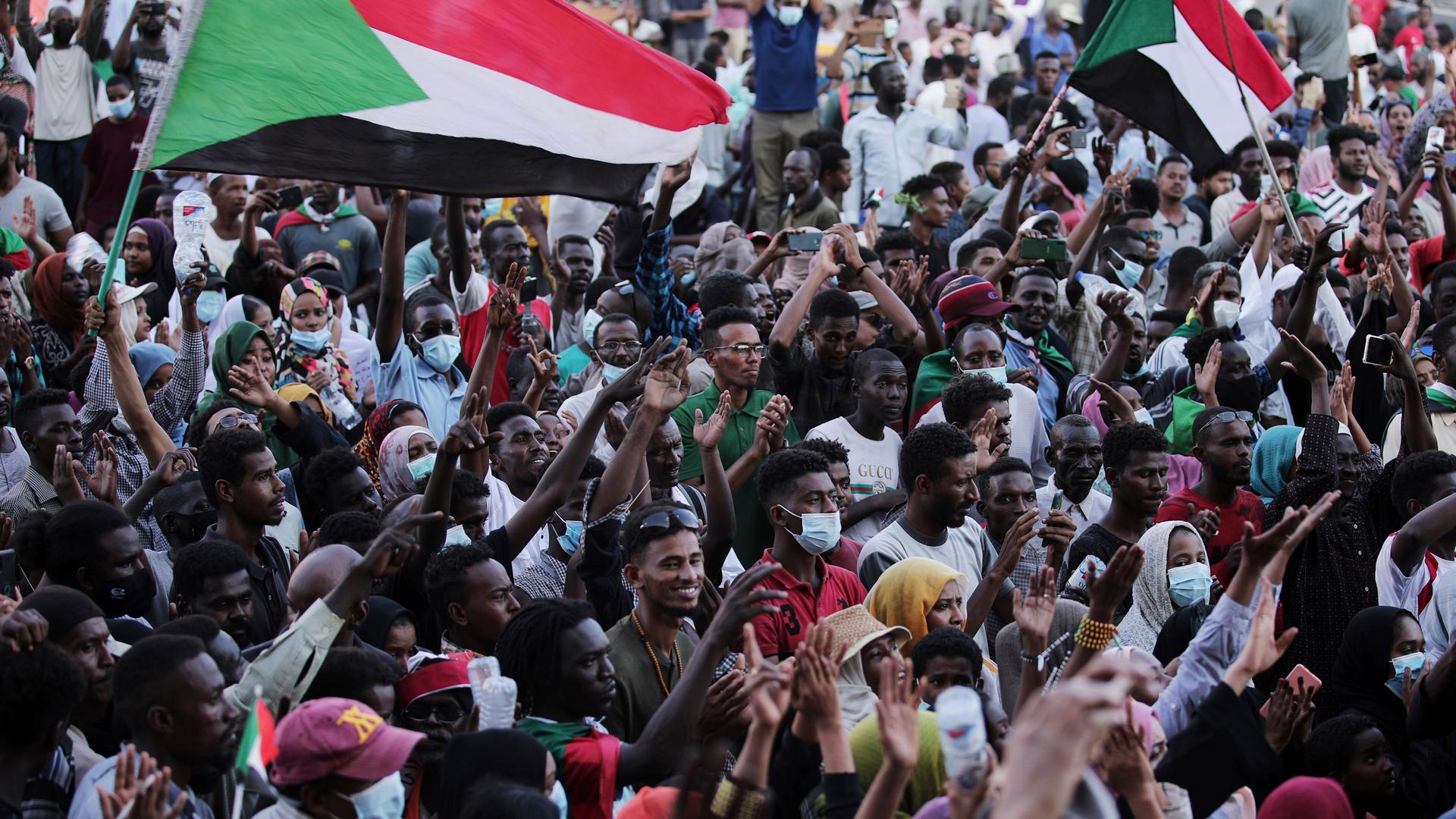Despite weeks of massive street protests and widespread international criticism, Sudan’s military seems to be doubling down on its power grab that began on Oct. 25.
On Thursday, army chief General Abdel Fattah Al-Burhan was sworn in again as head of Sudan’s new Sovereign Council, a body that the military dissolved nearly three weeks ago.
Related: Amid plans of mass protests, Sudan’s military suggests ousted prime minister can return to power
The joint military and civilian council was established in 2019, following the ousting of former president Omar al-Bashir.
It was meant to steer Sudan toward democratic elections.
Now that future is in jeopardy.
And across Sudan, “march of millions” protests have reportedly been organized.
Related: Sudanese protester to military: ‘Our numbers are too big to be ignored’
In a statement today, the United States and other Western powers said the move “complicates efforts to put Sudan’s democratic transition back on track.”
Related: Sudan’s ousted ambassador to the US says resorting to ‘the gun’ doesn’t aid the revolution
Since the coup, multiple civil servants, including ministers and ambassadors, have been removed from their positions, and replaced.
“A lot of them are allied to the former regime,” said Jihad Mashamoun, a Sudanese political analyst.
Attempts to mediate between the military and civilian leaders have been unsuccessful so far.
“[T]he military did not want to release the people they arrested, and it didn’t want to recognize that what they did was a coup, which is actually the sticking point of Prime Minister Hamdok.”
“Because the military did not want to release the people they arrested, and it didn’t want to recognize that what they did was a coup, which is actually the sticking point of Prime Minister Hamdok,” Mashamoun explained.
Additionally, many civilian leaders and demonstrators are rejecting a return to the previous, fraught arrangement, which had military and civilian jointly sharing power.
For many critics, the recent actions by the security forces, including continued arrests of civilians, is a sign that the military isn’t serious about a democratic transition.
While some who were detained during the coup have since been released, some senior civilian officials remain in undisclosed locations.
That includes Yasir Arman, current political adviser to Hamdok and former rebel leader of Sudan People’s Liberation Movement—North (SPLM-N). His brother, Fattah Arman, described how Arman was taken from his home by armed men the day of the coup. A security video that captures the moment has since been shared online.
“He was barefoot, so they didn’t even allow him to put any shoes or even change his pajamas. There was a blindfold on his eyes,” Fattah Arman said.
Another brother of Yasir Arman, who has no apparent political affiliation, was also arrested, but has since been released.
To date, Yasir Arman’s family has received little information about his whereabouts or condition.
“We are very worried about his well-being,” said Fattah Arman. “But…he’s not alone, many have been arrested, many have been killed. We are positive that our people and everyone is going to topple this regime,” he added.
Peaceful protests against the military takeover have continued across Sudan, and diaspora communities, for weeks.
But the cost of these demonstrations has been high.
Activists have recorded more than a dozen deaths and many more injuries at the hands of security forces.
Abdulrahman Hassan Saied, a trader in Khartoum, said he was shot by security forces during a demonstration outside the military headquarters last month.
“The soldiers targeted us the protestors when we were peaceful.”
“The soldiers targeted us the protestors when we were peaceful,” he said.
His doctor told The World that it was unlikely Saied will ever be able to walk again due to his injuries.
Still, he remains defiant against the military – unwilling to relinquish the dreams that he and countless Sudanese have of a democratic future.
“We want civilian government that will bring stability,” he said. “We don’t want any military rule again.”
